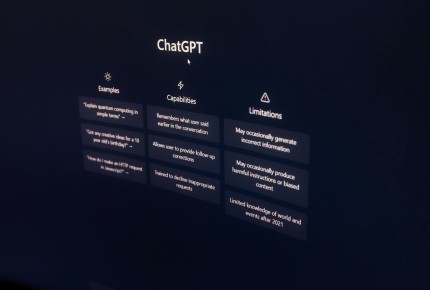Copyright © 2026 lpcentre.com All Rights Reserved. London Premier Centre For Training Ltd Registered in England and Wales, Company Number: 13694538
version: 3.0.1

Posted On: 10/24/2025, 7:34:44 PM
Last Update: 10/24/2025, 7:34:44 PM
On Tuesday, the US-based artificial intelligence startup OpenAI announced the release of Atlas, a web browser designed to compete with Google's well-liked Chrome browser.
The well-known chatbot ChatGPT from OpenAI will power Atlas as the California-based company seeks to transform internet usage.
Notably, OpenAI CEO Sam Altman highlighted a rare once-a-decade opportunity to rethink the purpose and usage of a browser, stating that despite the success of tabs, there has been limited innovation since then.
For example, Altman proposed that an AI chatbot interface may take the role of the standard URL search bar seen at the centre of conventional browsers.
According to the business, the browser will initially only be compatible with Mac machines. It is intended to assist users in completing “tasks without copying and pasting or leaving the page.”
With the help of a user's browsing history and the ability to predict the type of content they are likely to be seeking, the Atlas browser's so-called “agent mode” successfully navigates the internet on their behalf.
“It's using the internet for you,” Altman stated.
Well, that's one perspective. However, Paddy Harrington, an analyst at the London-based market research firm Forrester, cautioned that another way to look at OpenAI's new browser is as if it's “taking personality away from you.”
Harrington stated that a user's profile will be personally tailored based on their information, raising concerns about whether it truly represents the user's thoughts or if the engine will automatically add preferred solutions based on ads.
Additionally, Harrington emphasised that Atlas will face a significant challenge in attempting to compete with a giant with a ridiculous market share.

Google Chrome has more than 3 billion users globally since its 2008 launch, completely outpacing competitors like Microsoft's Internet Explorer and Edge browsers.
AI chatbots like ChatGPT are efficiently summarising internet information, leading users to prefer them over traditional browser links.
Besides, OpenAI reports ChatGPT has over 800 million users, with a recent survey by AP finding that 60% of Americans and 74% of those under 30 use AI for information searching at least some of the time.
Chrome has integrated AI summaries into search results, visible at the top of the page above the first link, despite concerns about the accuracy of this information.
According to a study released on Wednesday by the BBC and the European Broadcasting Union (EBU), 81% of AI responses had some kind of flaw, and 45% of them had at least one major problem.
Furthermore, the study evaluated ChatGPT, Copilot, Gemini, and Perplexity, among other AI assistants in 14 languages, for accuracy, sourcing, and the capacity to discriminate between opinion and reality.
According to EBU Media Director Jean Philip De Tender, ChatGPT has been discovered to be misrepresenting the current Pope as Pope Francis, months after the prior pontiff's passing. This error might potentially undermine credibility and dependability.
“When people don't know what to trust, they end up trusting nothing at all, and that can deter democratic participation,” he told the news agency DPA.